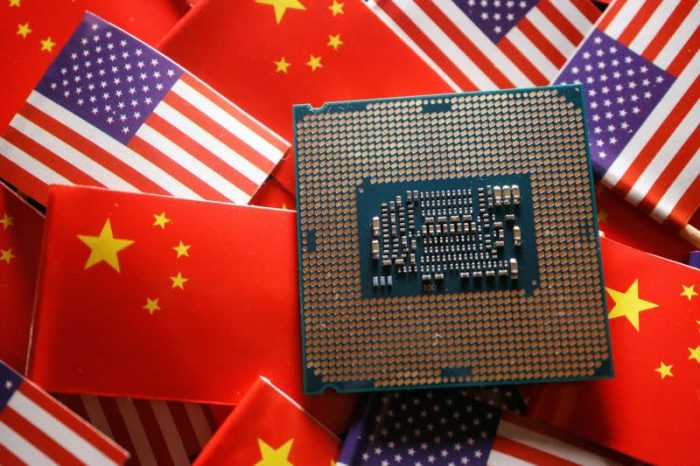Chip packaging companies are pouring billions into Vietnam as the shift of industrial activity out and away from China gathers pace due to trade tensions with the West, business leaders say.
Back-end production of the chip sector, which is less capital-intensive than strategic front-end chipmaking in foundries, is currently dominated by China and Taiwan, but Vietnam is among the fastest-growing countries in the $95-billion segment.
Hana Micron‘s vice president for Vietnam, Cho Hyung Rae, told Reuters the company was expanding in the Southeast Asian country to meet requests from industrial clients who want move some production away from China.
ALSO SEE: China’s CATL Eyeing ‘Zero Carbon’ Power Grids, EV Platforms
The South Korean company is investing about 1.3 trillion won ($930.49 million) until 2026 to boost packaging operations for legacy memory chips, a company official based in South Korea said.
Meanwhile, US-headquartered Amkor Technology announced a $1.6-billion plan last year to build a 200,000 square metre factory which it said would become its most extensive and advanced facility, “delivering next-generation semiconductor packaging capabilities.”
A business executive with direct knowledge of Amkor’s operation in Vietnam said some of the equipment installed in the new plant had been transferred from factories in China.
Amkor did not reply to requests for comment about the transfer of machinery.
Intel, which had a large booth last week at Vietnam’s first international semiconductors exhibition near Hanoi, has in the country its largest chips back-end factory in its global network.
US backing
Vietnam’s growth in the back-end segment of the chips industry has been encouraged by the Biden administration amid growing trade tensions between Washington and Beijing, which may further escalate with the second presidency of Donald Trump.
Thanks largely to the investments from foreign companies, Vietnam is expected to have by 2032 an 8% to 9% share of global capacity in chip assembling, testing and packaging (ATP), from just 1% in 2022, according to a report published in May by the US Semiconductor Industry Association and Boston Consulting Group.
Local companies are also expected to contribute to the sector’s forecast growth.
Vietnam tech firm FPT is building a testing factory close to Hanoi, according to three corporate sources, who declined to be named because the information was not public.
One source from the company said the 1,000-square-metres plant is expected to start operations early next year with 10 testing machines, to be tripled by 2026, for an investment of up to $30 million. It is still, however, seeking strategic partners.
FPT did not reply to a request for comment.
Vietnamese investment firm Sovico Group is also looking for a foreign partner to co-invest in an ATP facility in Danang, a coastal city in central Vietnam, said Le Dang Dung, a senior adviser to Sovico.
Vietnam is also aiming to become a player in front-end chipmaking.
Viettel, a state-owned defence and telecoms company, plans to build Vietnam’s first foundry, two company sources said, to meet the government’s ambitious goal of having at least one fab online by 2030.
The company did not reply to a request for comment.
- Reuters with additional editing by Jim Pollard
ALSO SEE:
Chinese Investment in Vietnam Doubles, As US Trade Eases
Chip Plants, AI, Boeing Deals Agreed at US-Vietnam Meetings
Seeking China Hedge, Top US Chip Firms to Join Biden in Vietnam
Vietnam Chip Engineer Shortage May Spoil US Plan to Rival China
Rare Earth Magnet Firms Plan Vietnam Plants as China Hedge
Chinese Energy Storage, Battery Firms Plan $1bn Vietnam Plants
Vietnam Power Cuts Hit Samsung, Foxconn, Canon Factory Hubs
Apple MacBook Manufacturer Quanta to Build Vietnam Factory
























